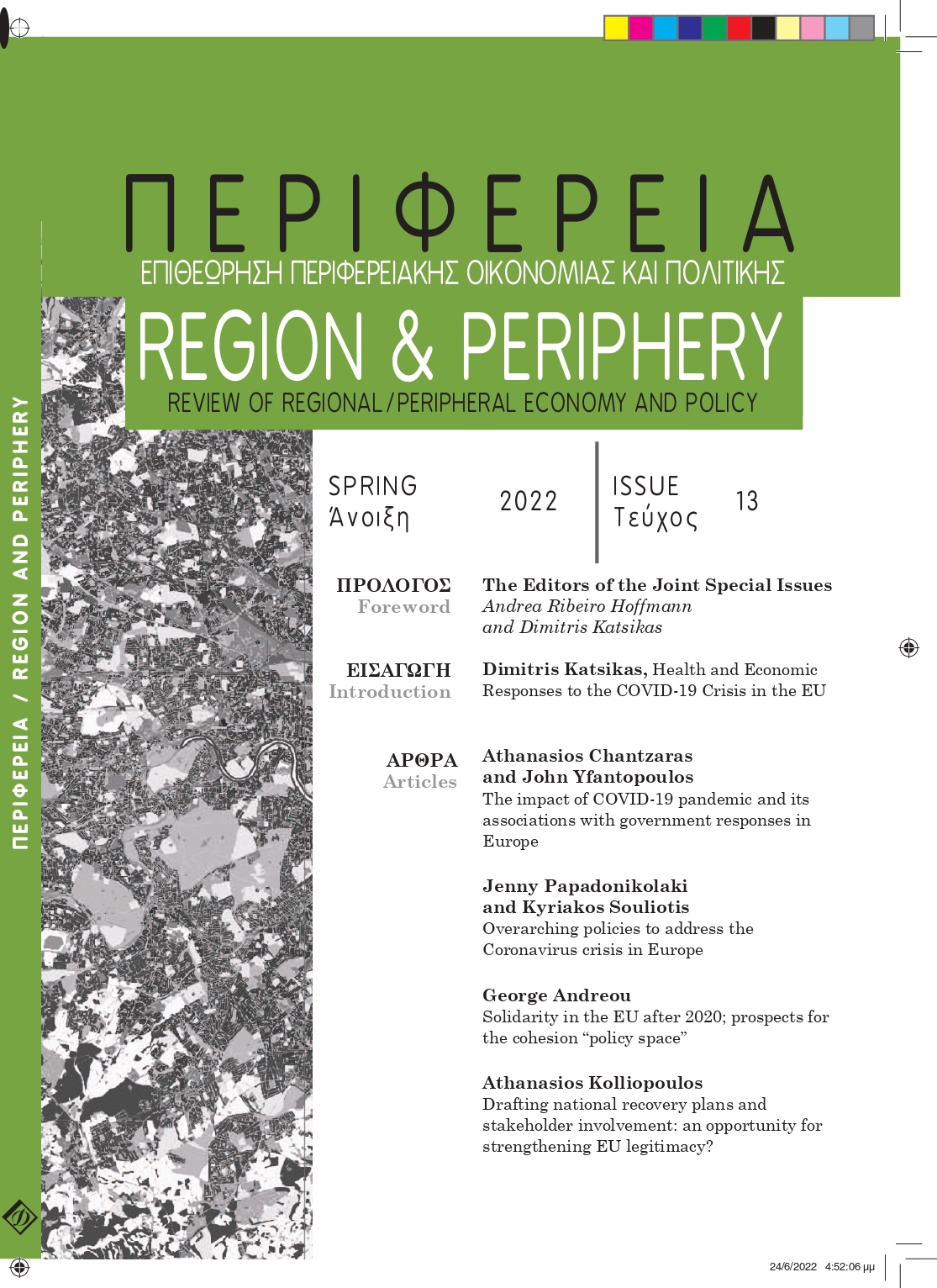The impact of COVID-19 pandemic and its associations with government responses in Europe
Abstract
Although stringent containment strategies are generally effective in slowing COVID-19 transmission, they also entail severe socioeconomic implications. This study uses aggregated data from Eurostat and the Oxford COVID-19 Government Response Tracker (OxCGRT) to quantify changes in GDP and their association with the stringency index. We examine the evolution of Covid-19 cases and deaths per 100.000 thousand inhabitants in Europe and discuss the impact on the economy. On average, EU member states witnessed an 11.4% reduction in their GDP, due to the COVID-19 crisis. The impact on the southern member states was even greater. We use OxCGRT methodology to rank the European countries on their performance against COVID-19 on the base of four aggregate indices referring to: i) the overall government response, ii) containment and health measures, iii) the stringency index and iv) economic support measures. It is shown that the southern European states and Ireland, top the rankings in terms of the stringency of the implement strategies to contain the pandemic.
Article Details
- How to Cite
-
Chantzaras, A., & Yfantopoulos, J. (2022). The impact of COVID-19 pandemic and its associations with government responses in Europe. Perifereia | Regional Integration: Politics, Economics, Governance, 13(13), 23–40. https://doi.org/10.12681/rp.30758
- Section
- Research Articles

This work is licensed under a Creative Commons Attribution-NonCommercial 4.0 International License.
Authors who publish with this journal agree to the following terms:
· Authors retain copyright and grant the journal right of first publication with the work simultaneously licensed under a Creative Commons Attribution Non-Commercial License that allows others to share the work with an acknowledgement of the work's authorship and initial publication in this journal.
· Authors are able to enter into separate, additional contractual arrangements for the non-exclusive distribution of the journal's published version of the work (e.g. post it to an institutional repository or publish it in a book), with an acknowledgement of its initial publication in this journal.
· Authors are permitted and encouraged to post their work online (preferably in institutional repositories or on their website) prior to and during the submission process, as it can lead to productive exchanges, as well as earlier and greater citation of published work.



